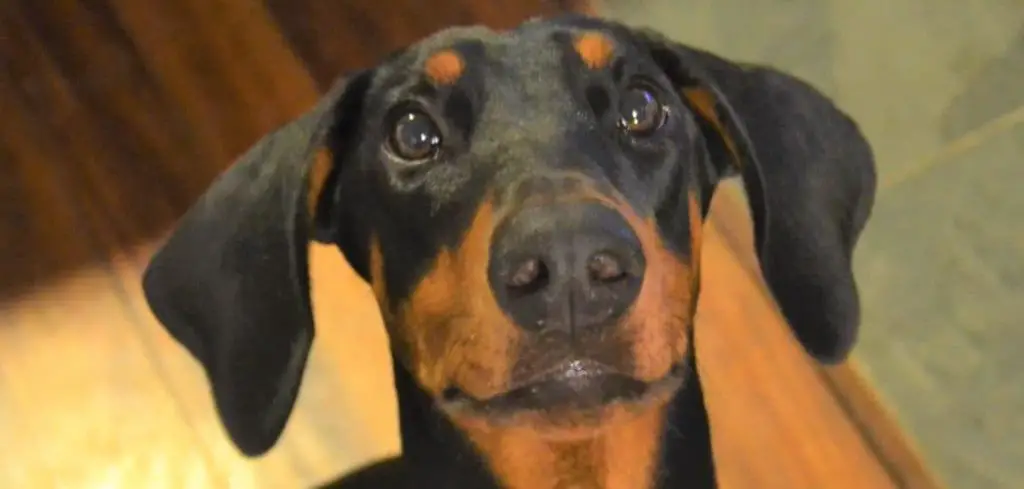It can be deeply unsettling to see your dog drooling excessively and acting confused. These symptoms often signal that something is seriously wrong—physically or neurologically—and they should never be brushed off.
We outline the possible causes for a dog drooling and acting confused, what you can do at home, and when to seek veterinary help.
Dog Drooling and Confused — Why It Happens
Drooling paired with confusion in dogs usually signals an underlying health crisis that affects the nervous system, internal organs, or causes severe stress. Possible causes include toxin ingestion, seizures, low blood sugar, liver failure, or heatstroke. Sometimes, emotional distress or anxiety can also cause similar signs, though these are less common.

Dog Drooling and Confused: Possible Causes
Toxin Ingestion
When a dog ingests something toxic—like pesticides, cleaning agents, certain plants, or human medications—it can result in sudden drooling and mental disorientation.
You may notice your dog foaming at the mouth, struggling to walk straight, or displaying muscle tremors.
These substances affect the nervous system and gastrointestinal tract, leading to neurological confusion and overstimulation of saliva production.
This is a medical emergency that requires immediate veterinary intervention.
Read more: Dog Drooling and Foaming At Mouth (What it means)
Seizure Activity or Postictal State
Dogs who have just experienced a seizure often go through a postictal phase where they drool excessively and appear dazed or confused.
They might pace, stumble, or stare blankly. Some dogs may temporarily lose vision or not recognize their owners.
The excessive drooling is a leftover from the seizure’s neurological storm, and the confusion is part of the brain resetting itself.
If this happens more than once, or lasts longer than an hour, it’s crucial to get your dog evaluated by a vet.
Hypoglycemia (Low Blood Sugar)
Low blood sugar, especially common in puppies or small breed dogs, can cause confusion, trembling, and drooling.
Your dog may appear lethargic, uncoordinated, or even collapse if blood sugar drops too low.
This is particularly dangerous in diabetic dogs if they’ve been given insulin without eating enough food.
Left untreated, hypoglycemia can lead to seizures or coma, making it an urgent medical concern.
Liver Disease or Liver Shunt
The liver plays a critical role in filtering toxins. When it malfunctions—due to disease or congenital shunt—ammonia and other toxins build up in the bloodstream.
This can cause neurological symptoms like confusion, drooling, and in some cases, aggression or circling behavior.
Signs may worsen after meals, especially high-protein ones, as the liver struggles to metabolize nutrients.
Dogs with liver issues often need specialized diets and ongoing medical management.
Heatstroke
Overheating can lead to both excessive salivation and mental disorientation.
Dogs suffering from heatstroke may pant heavily, collapse, appear weak or mentally absent, and drool thick saliva.
This is an emergency that can quickly escalate to organ failure or death.
Breeds with short snouts (like Bulldogs or Pugs) and overweight dogs are particularly at risk.
Canine Cognitive Dysfunction (Dog Dementia)
In older dogs, drooling and confusion might point to cognitive decline, similar to Alzheimer’s in humans.
These dogs may get lost in familiar spaces, stare at walls, or seem unusually anxious.
Drooling may occur due to stress or a lack of spatial awareness.
While not a medical emergency, canine dementia requires long-term management with medication, routine, and dietary changes.
What to Do If Your Dog Is Drooling and Acting Confused
First, remain calm and observe your dog’s behavior carefully. Look for additional signs like vomiting, seizures, unresponsiveness, or signs of poisoning (e.g., chewed packaging or unusual odors).
If you suspect toxin ingestion, seek veterinary care immediately. Do not attempt to induce vomiting unless instructed by a professional.
Offer your dog water, but don’t force it. If your dog is too confused to drink, this is an emergency.
If the episode is brief and your dog returns to normal within minutes, note the time and details to discuss with your vet.
For dogs with known liver issues, hypoglycemia, or dementia, follow their prescribed care plan and avoid triggers (like high-protein meals or hot weather).
Avoid giving treats or medications during these episodes unless advised by your vet.
When to Call or Visit Your Vet
If your dog’s confusion lasts more than a few minutes, or is accompanied by any of the following, call your vet immediately:
Vomiting or diarrhea
Muscle tremors or seizures
Unresponsive or vacant expression
Gums that are pale, blue, or yellow
Known access to toxins or medications
Even if the symptoms resolve on their own, a vet visit is still warranted to identify the underlying cause and prevent recurrence.
Read more: Dog Drooling and Licking Lips (Is it something worse?)
Key Takeaway
Dog drooling and confusion are not normal behaviors and almost always signal an underlying medical issue.
Whether it’s a seizure, toxin, or chronic liver problem, fast action can make all the difference.
Monitor your dog closely, provide comfort and hydration if possible, and never hesitate to reach out to your vet when these symptoms appear.
Your quick attention could be lifesaving.
